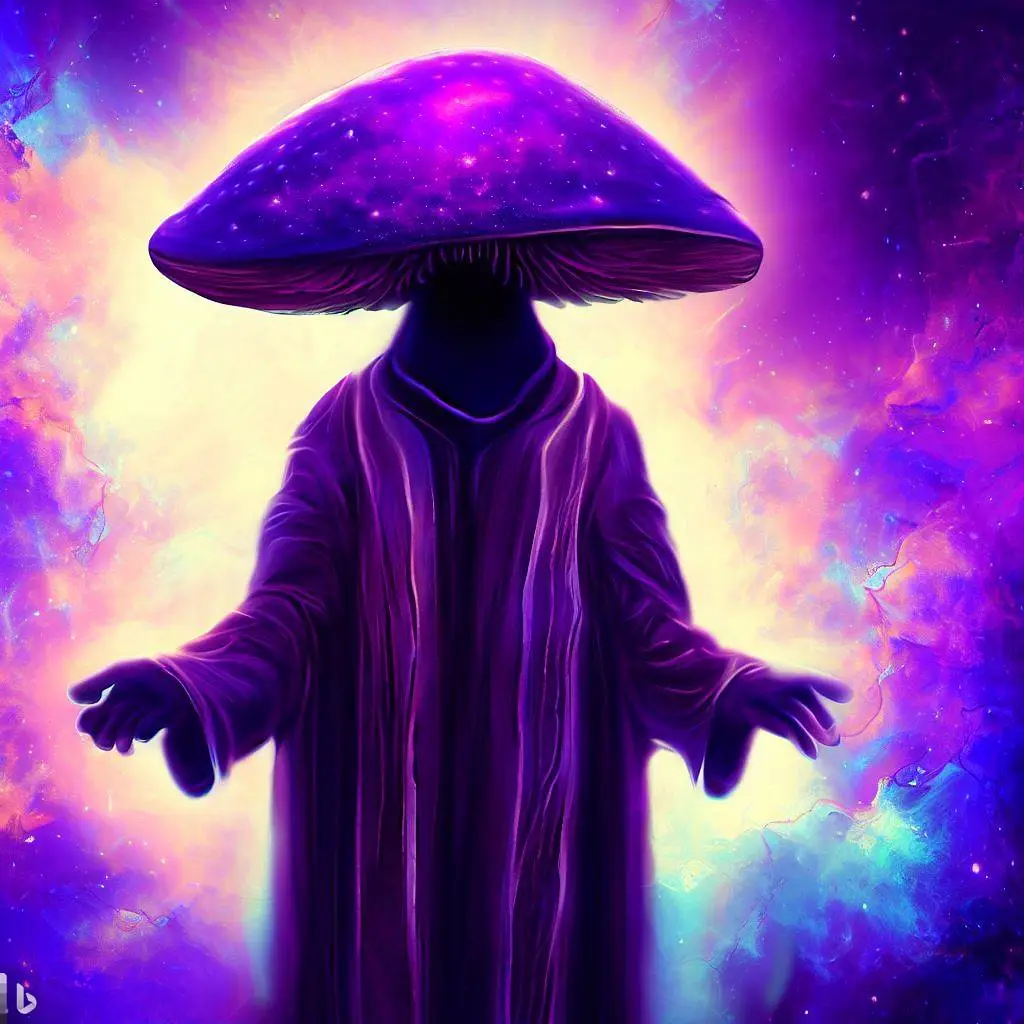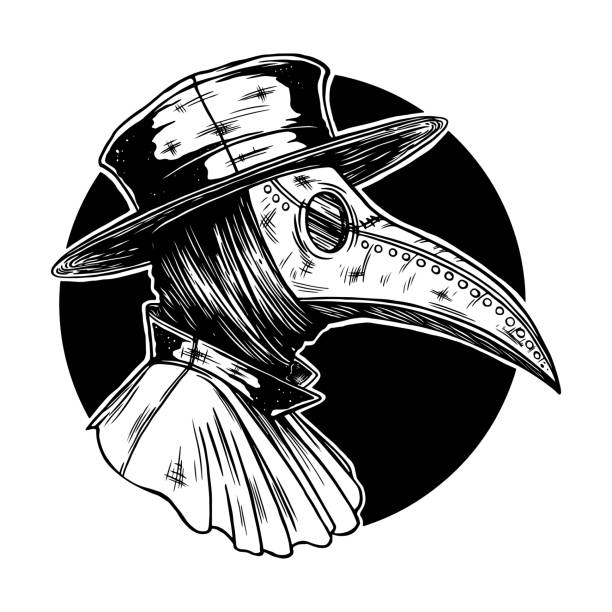Mostly trying to relate.
Of the things that kept me a Christian, least important to me was the historicity of the Bible, even though, to this day, I still have a high regard for the Bible as a historical document.
The second most important was the evidence of the effect of God in the lives of the people around me at church.
But the most important, beyond anything else, was the subjective experience of “the Spirit”. I wasn’t pentacostal, but I was all-in as a Christian; It sounds so woo-woo, but I don’t know if most people are aware how convincing a truly “spiritual” experience is, even most Christians, since most Christians seem to be cessationist about the most basic interactions with the Spirit (not just healing, prophecy, speaking in tongues, etc.), even if their theology says otherwise. For example, whenever I had a big decision to make or something I was anxious about, I would find a place where nobody could hear me, sing a few hymns, read a few Bible verses picked totally at random, and pray-- not about my decision, just prayer in worship of God-- and without ever actually addressing my issue, within a short time, I almost always had a profound peace about which choice to make, even when that decision went against my insecurities, my rational thought, my will, my perceived abilities, or all of the above. I didn’t know or even care the degree to which praying for “stuff” affects the outside world, but I knew prayer affected me and made me a better person.
There are even little “tests” you can contrive out of the Bible to experience “the Spirit”. There’s a verse, 1 Corinthians 12:3, that says that nobody can say “Jesus is Lord” except by the Spirit. (Obviously, anyone can say the literal words, but to actually mean it is harder.) Anyway, I know some Christians who take this literally, and taught me to pray the words “Jesus is Lord”, and when I did, something deep inside always responded, “Amen!”. Romans 8:16 could be used the same way, i.e. “I am a child of God”. Really, any Bible verse or anything I knew with 100% certainty would elicit the same response. But trying the same experiment with any other phrase would only leave me feeling gross inside.
Anyway, I started to have doubts in the mid 2010s. First was the realization that other people’s testimony of their spiritual experiences wasn’t terribly reliable. For example, I once went to a prayer meeting while visiting friends in a rural, less educated town, and, while for the most part I had a good time, I was rather culture-shocked by the fast and loose way the Christians there used (and meant) the word “miracle” to describe positive but entirely mundane life events. Like I’m glad your brother-in-law saw an incremental improvement in his cancer this week, but, I mean, the rain falls on the just and unjust alike; it seems more superstitious than spiritual that you credit his improvement entirely on last week’s prayer meeting. But whatever, it’s a small thing and it doesn’t really matter.
But then I noticed a similar trend in the Christians I looked up to. This isn’t a spiritual example, but my church was politically mixed, and while I didn’t care too much that my friends were supporting this candidate or the other, there was a definite uptick in cognitive dissonance from the 2015 political realignments, leading to people convincing themselves of viewpoints they didn’t even remember they disagreed with just last week. The ability to rewrite history en masse with no knowledge it was ever rewritten was something I’d never experienced so viscerally prior to that. (I get that people have a tendency to believe whatever they want to believe, but I’d never seen it at this scale and to people so mentally stable and intelligent.) I finally started to understand how so many secular Bible historians could agree that the early disciples of Jesus genuinely believed they witnessed Christ die and rise again yet completely discount the story as inaccurate. Mass hallucinations don’t work that way, I always thought.
Then it happened to me too. Now, I recognize that any impression or feeling or answer to prayer from the Spirit is going to be, in many ways, ambiguous. With the exception of those moments of profound peace, you kinda just get a pretty good idea of what you “heard” from the Spirit and accept that there’s always the chance you misunderstood. But it was the former, moments of profound peace, that caused me, for example, to turn down work that would’ve pulled me away from my congregation at home to another town further away, despite already being out of a job at the time. This was a bad move, financially, and eventually I ran out of money and got evicted. Now, the Bible doesn’t make that many concrete, single-variable, testable promises about what’s supposed to happen to a Christian walking with God, but one of the one’s that’s strongly implied is that if you “seek first the kingdom of God”, your basic needs will be provided (Matthew 6:31-33). I get that there are going to be exceptions to this, and I’m not trying to imply a prosperity Gospel, but I don’t live in a third world country and I wasn’t being persecuted and there was no reason to be struggling financially in my position short of irresponsibility. I was genuinely “seeking first the kingdom”, and the result was personal failure. And whether or not I’ve taken the Bible too far to contrive a promise that isn’t actually there doesn’t really matter, because the Spirit said it was a promise, or so I thought. Clearly, I misunderstood.
The problem is, if I misunderstood the most obvious, unambiguous things that the Spirit told me, nothing is trustworthy.
The other problem is that I had been noticing that it didn’t seem like I was spiritually growing as much, despite staying out of sin and following the Bible to the capacity I was able. Christianity clearly had made me a better person from the moment I converted from atheism until several years after, but it seemed like whatever character flaws I still had after five to ten years were just “stuck” in place, and, in fact, this seems to be the normal Christian experience. My pastor mentioned to me a book he had been reading-- I wish I could remember an author or title-- that mentioned that the average Christian is good for about seven years, and then they become a warm body for the rest of their lives. He meant it as an admonishment to continue walking with God, but seeing as I thought I was walking with God, I looked around the church and was horrified to slowly realize that this characterization matched my experience of the Church. It’s still the same God; He didn’t change. So what changed? Some of the best people I ever knew I knew from church, but they still had rough edges that were never addressed. If anything, the congregation was just getting more cult-like and rigid (“rigid” in a religious way, not in any actual adherence to the Bible) over time.
Eventually, I found myself overwhelmed with doubts. I started running little spiritual experiments. Once, I was taking a shower, and I started doing the “Jesus is Lord” experiment, except that I found that with a little mental gymnastics, I could coax the same response from random objects; like, I could say “shampoo”, and something inside would say, “Amen”.
After that, the idea that “the Spirit” was all in my head seemed more plausible than the existence of God. So that was basically the end for me.
This was a really interesting read, thank you.
Same here too, these realisations must have been very surreal for you.
Well that was wild. I think the best thing to remember from this is that religion is not going to give you “advice” like a friend would. The Bible doesn’t know whether you should get a different job. It’s not logical, it’s emotional.
If a loved one dies or you have to make a tough moral decision, that’s where it can help. Same with any philosophy. You wouldn’t ask Immanuel Kant some boring question, so why ask God? No He doesn’t care about your football game. Sorry.
I was a Christian until I was 18. One day I was reflecting on how Jihadist’s will blow themselves up because they’re totally convinced they’re right.
I asked myself if I would do the same, but ended up saying “I don’t believe that much”, which promoted me to ask myself “then why believe at all?”.
Since then I’ve totally deconverted and I’m now anti-theist. I resent that I was indoctrinated, and I see religion as the main culprit for most of the problems in the world.
First drop of doubt for me began at a Wednesday youth service. Not only was I such a strong believer that I went to church in the middle of the week, I drove myself because I was the only one in my family who wanted to go. The youth minister was giving a class on cults and the more he spoke the more it sounded like my entire life was being part of a cult. Following that thread led to me finally admitting to myself that I don’t believe anymore about 6 years later. It was a long road with lots of doubt and denial but that one sermon on how to identify a cult woke me tf up.
That’s actually hilarious. By all accounts, religions are definitionally cults. Though colloquially we tend to define cults as ‘dangerous’, even though there are many cults which are arguably more tame than some ‘religions’.
That was basically the answer he gave me when I asked what separated us from a cult. He must have forgotten all the evil done in the Christian God’s name because Christianity also has a history of being dangerous.
It was a long process, I suppose, not one event. When younger I was always fascinated by science, and as I grew older, I suppose I started seeing less and less sense in god fitting into the equation.
I think the turning point of the whole thing was when I was in a religious camp for my confirmation and the last day, we had this… party? It was called Slávy in my language, and it was basically a concert with religious songs, which was so intense that people were fainting, “feeling god,” and whatever.
When my classmate fainted, and everyone was saying, “Oh it’s okay, she’s just feeling god,” and shit like that, that fucked me up. Not only because she fainted, but because I saw right through the bullshit. The loud music, the aroma, and the darkness of the place were overwhelming, but not because of any religious or supernatural reason.
That night, I understood truly and fully that religion is nothing but smoke and mirrors, and I’ve been becoming more secular and, lately, even more anti-religious (because of current events) by the day
Went to Jesus camp and got assaulted by a counselor pretty badly, was harassed into keeping silent about it. Would rather not discuss it too much, I did have to go to the hospital. My faith died at that point and I was just going through the motions for years. I was planning on a theology degree of some sort but decided my heart wasn’t in it. Went for engineering instead. Hit a low point right before graduation and was really hoping to feel literally anything, felt nothing.
2018 sat down one night and decided that I was done pretending I was just lapsed, that I was being a coward. I was going to look at the evidence and see where it went. Been an atheist ever since.
I learned logic and stopped accepting cognitive dissonance.
There’s actually very little original about Christianity. Almost all aspects of it had been around similar Middle Eastern religions.
Council of Nicea just decided what the Bible is. Often based on nothing more than politics.
Sorry. The Council of Nicea didn’t decide what the Bible is. It was a Bishop who went to the conference. Right after the conference he received a letter asking him which books which were good to use and which weren’t. He made a list and sent it out. The letter got popular and they called a new conference right away, then voted on his list. The Council of Nicea dealt with an issue of the Trinity, declared that there was one church of the Christian people and it was Catholic, and a procedural issue about rules governing Bishops.
If you mean a belief in a supreme being, I’ve been agnostic for most of my life, leaning towards atheism. That hasn’t changed.
Organized religion is a completely different thing, and in my opinion, comparable to nationalism. I’ve seen way too much inhumane shit being done to other humans in the name of some ideology or other, and I decided not to be part of it. No gods or kings, as far as loyalty goes.
Technically I was raised in a completely non-religious household so I was never myself properly religious but I always found the reasons why that was a thing really interesting.
My grandfather on my Dad’s side did a stint in WWII protecting the Vatican as part of the Canadian forces. He never spoke about what actually happened there (because he wasn’t allowed to) but it shook his Catholic foundations to the marrow and was never able to reconcile what happened with his faith. When he returned home he had a massive row with the priest at his church that he left. Half the family disowned him for leaving the church. My father never particularly went to church though his mother remained an Anglican.
On my Mother’s side my grandparents made an enemy of the local diocese when they and a bunch of their friends conspired to run a priest out of town for being a complete asshole to children publicly and a child molester privately. My grandmother basically swapped to playing organ at another smaller church but the rest of the family became very agnostic and really didn’t want to expose their kids to the faith.
So I basically wasn’t raised with faith because three generations back everybody in my family had a religious crisis… And I am SO glad you have no idea.
I realized I had to make an effort to continue believing, so I stopped.
I was raised a specific way with Christianity at the core of it. My mom was Catholic but didn’t really practice, my dad’s side had a history of church leadership, but it skipped a generation. Both of them went to a revival right before having kids. By the time I was born and aware, they were very dedicated members of a local Baptist church.
I wasn’t allowed to read comics, watch most TV, listen to most music. I couldn’t watch most movies, we didn’t have cable, we didn’t have internet, so I was stuck thinking this is just the way it was.
Even inside the church, I wasn’t allowed to play with certain kids, talk to certain adults. I wasn’t allowed to talk with girls… A lot of stuff I wasn’t allowed or supposed to do.
I was ADHD and an Aspie, but my family didn’t really like that kind of medicine so I never took anything. High expectations to meet, and constant disappointment in my failure to meet them.
Nonetheless, I believed the Bible, in God, in Jesus. I listened to the teachings and stories. I learned what I was supposed to be as a Christian: good, kind, caring, putting others first, denying yourself, etc. and I thought that was great. It made me very understanding of others, listening to them and meeting them where they were. It made me generous and kind, offering help with no hope for reward or return. I didn’t mind that I never got my way, was always wanting more… That didn’t matter, my reward would come later, just like the Bible said.
~
Enter Obama. While I was excited about the advent of a new president but wasn’t yet old enough to vote, politics started to creep into religion. People blamed him and Democrats for everything, while reverting to scriptures and other doctrines to say why. After a soul searching moment related to the legalization of gay marriage, I realized that what the government did wasn’t at all pertinent or related to the church.
The pastor I had at the time navigated this issue with finesse and grace. He called on our church members to follow the basics: the Bible applies to Christians, not non believers. And believers or not, we should treat everyone with kindness and love. Needless to say, he got subtly pressured to leave over the next year or so. I appreciate him a lot for speaking up and asking for love in a time of growing hatred. Last I heard he became a sports coach for a high school, living the example of showing love by doing, not saying.
~
After that, with Trump on the horizon… My church devolved into the cesspool of trying to reunite religious law with common law. They wanted to outlaw gays because “the Bible says so”. They wanted to stop abortion because “the Bible says so”. They wanted to get rid of all the immigrants… Because the Bible said so? No, beyond those two points the Bible and Jesus were left behind, and instead the hatred started to pour out of these people. There was no love, it was only hatred and spite and fear. Trusting in God meant voting Republican. Doing his will was reduced to wearing red hats and saying “Lets Go Brandon”. Spending money on improving the nation and it’s inhabitants was socialism, the very enemy of the American people…
And it was at that point I realized that the religion I was taught as a kid, of love and kindness to all mankind at your own expense… Was gone. You didn’t need religion to be a good person and to help others. Religion was being used like a crowbar in the gears of our democracy. And it seemed to be used similarly everywhere else, too.
I had better access to the internet, interacted with more people, and found that my suffering as a kid came from a denial of science by my parents, and holding me to restrictions in the name of faith that did nothing but damage my growth.
~
I like Jesus, the concepts, the teachings, the story. And wouldn’t it be wonderful if everyone who claimed to live in his name acted to his example? But nobody really does. I’ve been spending more time attempting to deprogram myself from religion and faith recently, because I’m pretty sure a day will come where that classic scenario would happen: someone will hold a gun to my head and ask if I believe. But it’s not going to be some godless terrorist bent on eradicating the “good news”. It’ll be some proud American patriot with Fox News pouring from his headphones, following his Republican Party’s call to action, killing those who don’t believe in what he does because he’s been told that’s the only way he’s getting heaven on earth.
And despite whatever I may think, that day I’ll gladly say I no longer believe.
Removed by mod
At one of those bible study after church things, I asked the priest if when I die and go to heaven, I’ll get answers to things I’ve always wondered, like how many stars there are, or since I’m outside of time then, be able to observe historic events like building of pyramids or the asteroid impact that killed the dinosaurs , or supernovas, or how technology would be in the future.
… he said that I wouldn’t care, I’d be too busy being astounded by the face of god for all eternity.
Which I thought was the lamest way to spend eternity, and what’s worse, would mean that my main trait at the time, curiosity, wouldn’t be part of me when I’m in heaven. Then would it really be me up there?
Act 2. I eek out the “why does a loving god allow souls to be tortured and burnt for all eternity” question to a different priest and got some answer like hell is just the absence of god. Which, I can understand why to him that’s torture but for me… it seemed more like a “ok you don’t want to stare at my godly face for eternity? Be elsewhere then with your fellow non believers “. Which from my pov, it’s like ok no big deal then?
And from there the shadow of doubt grew enough and now I understand this is all there is so we just gotta make the best of it, and try to push the envelope for humanity in any way we can.
Here’s a couple silly reasons why:
-
I kept asking for supernatural things to happen, or to win something like a small school lottery. The fact nothing happened, let alone a clear punishment, did disappoint me.
-
When I discovered that Santa was fake was when my faith started to really crumble.
-
Sometimes listening to the Pastors speak gives me a nice sensation on the back of my neck. I later discovered ASMR. I sometimes still listen to old religious people speak, but I’m not actually paying attention.
Here’s the real reasons why:
-
Finding too many things I disagreed with or did not understand from the text.
-
Having a religious preacher fail to explain them to me.
-
Discovering other religions exist.
-
Learning what a cult is and making 1:1 comparisons to most religious entities.
-
Discovering how shitty the real world is.
-
Science (like, all of it)
-
History (also, all of it)
-
Discovering philosophy
-
I was up for confirmation, when allegedly the Holy Spirit enters you and you start a more adult phase relationship with God. Post-ceremony, the prep class teacher asked all of us newly confirmed kids if we had felt the holy Spirit enter us. Every single kid but me said yes. It was obvious to me that they were being influenced by each other and the encouragement of the teacher and the specialness of the ceremony. Realizing I didn’t want to be carried away by the wave of group fuzzies was the start of my drifting from the church.
And then the firm end to it all was when I left home and got away from the network of religious friends and family I grew up around and really saw how the church treats gay people and women and children.









